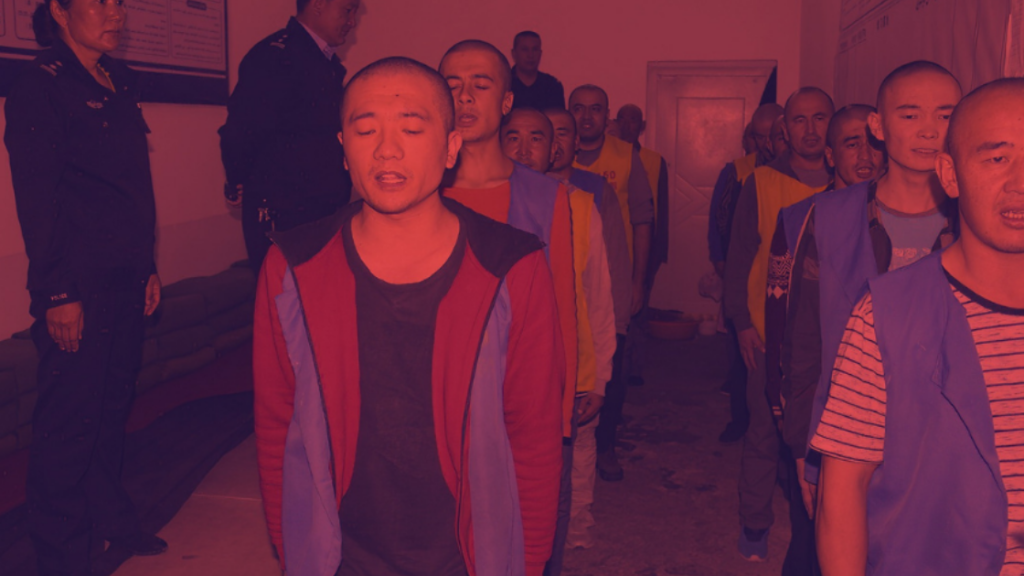A Maine-based solar project may have imported solar panels whose parts were once sourced from forced labor in Xinjiang.
The solar project is part of Maine Governor Janet Mills “Lead By Example” initiative, which included a 2019 Executive Order directing state agencies to install “renewable energy generation and energy storage on state property.” One such contract went to purchasing 8,000 solar panels made by Canadian Solar, a publicly traded company whose name makes it sound like they manufacture across the border, but in reality, they mostly import from Asia—and from Chinese manufacturers in particular. Its top management is mostly all Chinese Canadians, including those who have worked at China banks in Hong Kong.
Documents from the company show that only around 3% of its workforce is in Canada, while 95% are in Asia, with 79% in China. The company’s China headquarters is in Suzhou and it has factories in Vietnam, Malaysia, and Thailand. All three countries accused of dumping solar products into the U.S. by the Commerce Department recently. The company has also been on the receiving end of anti-dumping duties.
More importantly, according to the Globe and Mail, Canadian Solar has a large manufacturing operation in Xinjiang, a region now infamous for the unreasonable and arbitrary detention of Uyghur Muslims living there. The United Nations said that Xinjiang is China’s most egregious human rights-violating province. Last year, President Biden signed the Uyghur Forced Labor Prevention Act into law, restricting entry of numerous solar products Chinese companies sell to the United States unless the company can prove it does not use forced labor in its supply chain. Most of the forced labor allegations are found early in the solar panel supply chain, such as in polysilicon and quartz quarries.
In 2021, President Biden directed the U.S. Commerce Department to blacklist one of Canadian Solar’s largest suppliers, Xinjiang GCL New Energy Material Technology, a subsidiary of GCL New Energy, which is itself a subsidiary of GCL-Poly Energy. GCL Poly Energy is one of the largest suppliers of polysilicon in China.
In a report released in 2019 and 2020, Canadian Solar again said GCL was its largest supplier of silicon wafers. Those reports appear to have been scrubbed from Canadian Solar’s website, but are available in archive form, Maine Wire, a local news publisher, reported on January 6. GCL said at the time of the Commerce Department’s decision to add them to the Entity List that accusations of false labor were “invented out of thin air.”
U.S. Customs and Border Protection (CBP) seized some of Canadian Solar’s modules in August 2021, along with products from several other Xinjiang-linked solar manufacturers, though the company says it was collateral damage in CBPs Withhold Release Order (WRO) for polysilicon-derived products, namely solar goods, back in June of that year.
It is unclear at this time how many packages of solar products from Chinese-based manufacturers have been held up at the ports because of WROs and the new Uyghur Forced Labor Prevention law. Or if any were returned to sender. But according to CBP, border control agents seized nearly $500 million worth of solar modules and other imports in 2022 due to forced labor, Axios reported.
Thea Lee, head of the International Labor Affairs Bureau inside the Department of Labor said in an interview with online news magazine The Wire that the U.S. “Shouldn’t be a market for goods made with forced labor.”
Thea Lee is Deputy Undersecretary for International Affairs at the U.S. Department of Labor since May 10, 2021. She was the President of the Economic Policy Institute from 2017 to 2021.
The Tariff Act of 1930 says the United States will not import, in whole or in part, goods manufactured, produced, or mined with forced labor. “We know that a lot of the goods that are made with forced labor in Xinjiang end up a part of other goods. Polysilicon made in Xinjiang ends up in most solar cells and panels that are sold globally. We should put economic pressure on the Chinese government to stop using forced labor in Xinjiang or elsewhere. This is not about attacking anybody or decoupling,” said Lee, who co-chairs the entities subcommittee of the Forced Labor Enforcement Task Force – the guiding light behind the Uyghur Forced Labor Prevention law. “This is just about enforcing our own laws.”
Solar importers have long been dependent on Chinese companies. Jinko, Trina Solar, and Longi Solar account for nearly two-thirds of the U.S. solar panel market, Axios reported, citing industry consultants. The U.S. solar industry, led by solar module makers, has recovered somewhat thanks to tariffs and anti-dumping duties imposed on companies like Canadian Solar.
“U.S. solar installers should not be buying solar panels made from raw materials produced from forced labor,” said CPA chief economist Jeff Ferry. “Canadian Solar is part of a global network of Chinese-owned and controlled companies whose goal is to extend China’s dominance of the global renewable energy equipment industry. An independent U.S.-owned and U.S.-based equipment manufacturing industry is essential for the U.S.”
Production Tax Credits Unleash Tidal Wave of Investment in Manufacturing














